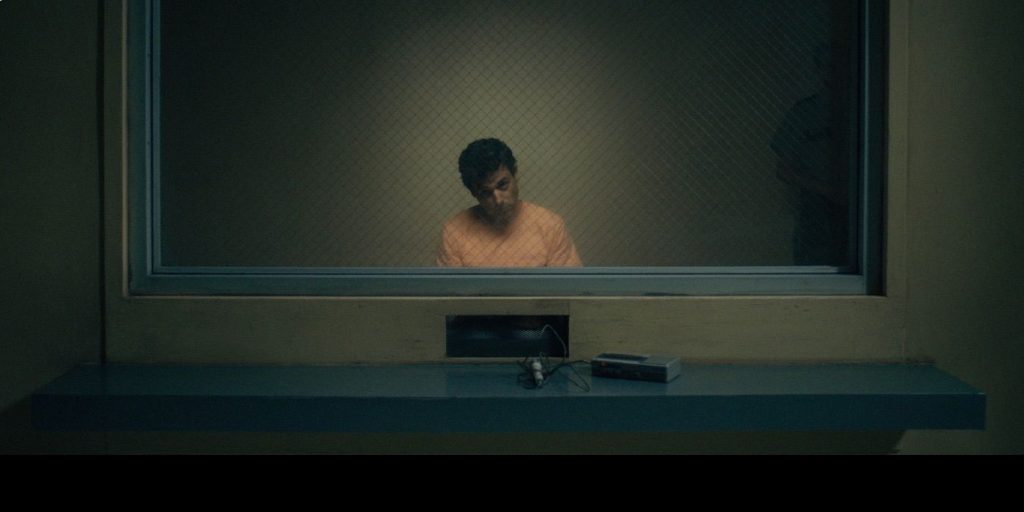Read also:
How to Watch FX Live Without CableHow To Watch AMC Without CableHow to Watch ABC Without CableHow to Watch Paramount Network Without CableNo Man of God, Amber Sealey’s Ted Bundy picture, is well made but does not successfully distinguish itself from its fellow study-of-a-serial-killer films.
In the days leading up to the Tribeca premiere of No Man of God, there was a brief dustup in the media when its director, Amber Sealey, did interviews in which she appeared to be taking potshots at recent films that had also been centered on notorious serial killer Ted Bundy for utilizing approaches that she suggested glorified him by depicting him as this brilliant and wildly charismatic character.
This didn’t sit well with fellow filmmaker Joe Berlinger, who made Bundy the subject of his Netflix documentary series Conversations with a Killer: The Ted Bundy Tapes (2019) and the dramatic film Extremely Wicked, Shockingly Evil and Vile (2019), in which Bundy was portrayed by no less a figure than one-time teen heartthrob Zac Efron. He responded in kind by suggesting that Sealey was deliberately misrepresenting his work in order to pump up interest in her own film.
Both Sealey and Berlinger have their points, I suppose. But as it turns out, this controversy may ultimately prove to be the most interesting thing about No Man of God in the end.

It isn’t exactly bad by any means—it has been made with a serious-minded purpose and it never quite devolves into the kind of sleazy exploitation enterprise that it might have become in lesser hands. The problem is that it doesn’t really offer viewers anything new or insightful, preferring instead to stick to the familiar ground that has already been explored by countless works in the years since the serial killer became a sort of twisted cultural icon in contemporary popular culture.
By the end, even those with a taste for such things may be asking themselves what the point of this particular journey was.
That said, the focus is not on Bundy’s murders—as the film opens, he has already been convicted of his numerous crimes and is languishing in the Florida prison system, hovering between a life sentence and the death penalty. Around this time, the FBI was beginning to institute a new unit in which investigators would try to get to understand the mindset of criminals instead of focusing solely on things like motives and evidence—what we know today as profiling.
One of the agents included in this program is rising agency star Special Agent Bill Hagmaier (Elijah Wood). When the prospect of interviewing Bundy (Luke Kirby)—who has refused to give previous investigators any information and who regards the feds as bumbling idiots—comes up, he volunteers for the task despite being told by everyone that he will get nothing from the man and his continued manipulations.
By the end, even those with a taste for such things may be asking themselves what the point of this particular journey was.
Unexpectedly, Bundy agrees to see Hagmaier — although at first, he seems more interested in offering his personal insights into the thought process of the Green River Killer (who was then haunting the Pacific Northwest) than in answering any questions about his own misdeeds. Although he continues to lord his self-professed intelligence over Hagmaier, an odd form of mutual respect does develop between the two men over the time that they spend together.
Then comes the final 1989-set section in which Bundy is finally given an imminent execution date. When a flurry of cynical last-minute maneuvers fail to bear fruit, will Bundy finally break down and provide Hagmaier with the information he needs?
All of this is presented in a competent enough fashion, but there’s hardly a scene that doesn’t carry a whiff of the familiar. The first half or so, concentrating on the mind games being played by Bundy and Hagmaier, will definitely remind viewers of the similar conversations between Hannibal Lecter and Will Graham in Michael Mann’s classic Manhunter (1986). Once it gets into the details of Bundy’s impending execution, it begins to slip into territory covered to a far more powerful degree in Dead Man Walking (1985).
As mentioned earlier, No Man of God is not a bad movie by any means—it has been made with serious intent and the two central performances from Kirby and Wood are effective enough. However, in the wake of so many films involving battles of wills between serial killers and the dogged investigators trying to understand them, most viewers will no doubt be looking for some unique insight or approach that might set it apart. But these stumbles are why, for all of its obvious artistic intentions, it ultimately comes up short.